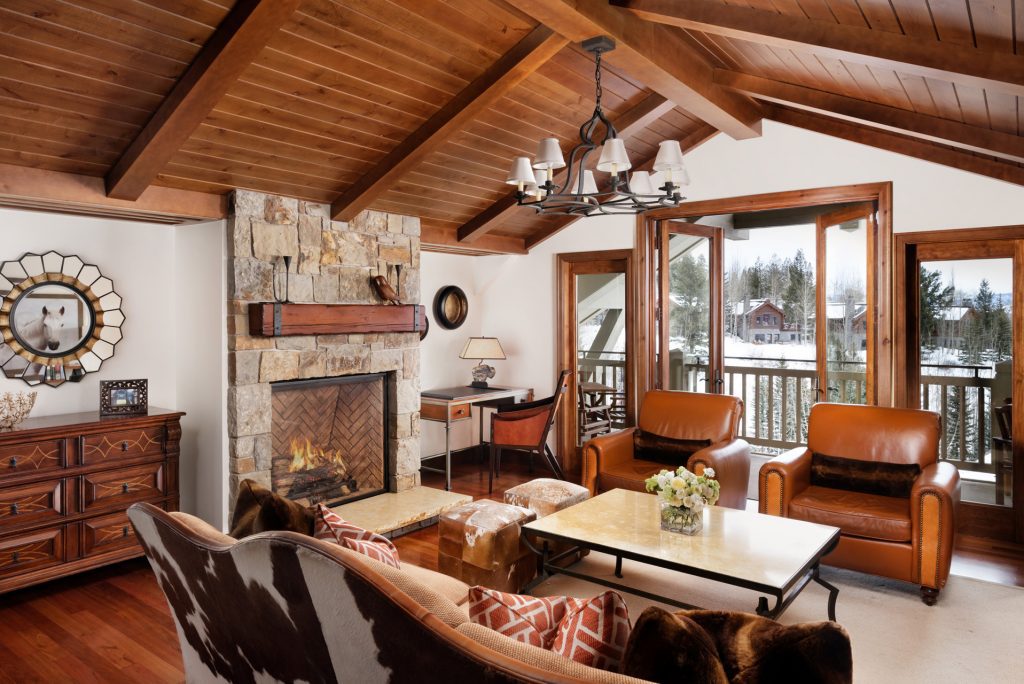Skift Take
Four Seasons isn't straying too far from the traditional hotel model when it comes to finding revenue during the pandemic, but Private Retreats is a smart tool to appeal to changing traveler demands surrounding complete control of a stay.
Even the historically viewed “recession-proof,” ultra-luxury hotel sector has to make changes in the face of a global pandemic.
Four Seasons Hotels & Resorts sees an opportunity to build up its Four Seasons Private Retreats division due to changing traveler demands during the pandemic. Private Retreats, which has actually been a division of Four Seasons for about 20 years, behaves like luxurious short-term rentals connected to or in proximity to one of the company’s hotels or resorts.
Given the public health crisis causing wary travelers to crave more control over where they stay, Private Retreats became a bright spot for Four Seasons during what is shaping to be the worst year on record for the global travel industry.
“As we’re seeing these trends and pent-up demand for travel come back, Private Retreats fits well with the demand for more space,” said Christian Clerc, president of global operations at Four Seasons. “Oftentimes, the residential developments are in resorts, remote locations, or mountain climates. They go well with the trends veering toward more privacy, more space, and extended stay.”
The Four Seasons Private Retreats platform, at face value, has increasing competition from the likes of Homes & Villas by Marriott International — Marriott’s short-term rental platform geared toward high-end homes. Airbnb was also in the space with its Airbnb Plus product, but that independent higher-end division seems to have faded out.
Clerc doesn’t see it as an even playing field, given Private Retreats’ much closer affiliation to an actual Four Seasons hotel or resort.
A Private Retreat property is often within the residential component of a Four Seasons hotel, gets serviced by a regular member of the Four Seasons staff, and even taps into all the contactless check-in and room programming features of the Four Seasons mobile app.
The program — with more than 750 properties — is smaller than Marriott Homes & Villas, which has about 12,000 listed properties largely unaffiliated with a Marriott hotel.
Private Retreats include a three-bedroom, two-level townhouse on the grounds of the Four Seasons Resort and Residences Jackson Hole in Wyoming. A six-bedroom villa is a Private Retreat product at the Four Seasons Resort Seychelles. There is even a chalet with room for 22 guests at Les Chalets du Mont d’Arbois, Megève, a Four Seasons Hotel.
“It’s all about the integrated product. If you think about the notion of trust, trust is going to be even more fundamental in the future about where people choose to stay,” Clerc said. “The difference here between us and the other brands is this integrated service offering. You’re getting Four Seasons service end-to-end. None of that is outsourced.”
A Luxury Recovery
Some may think ultra-luxury products like a Four Seasons hotel are immune to economic downturns since the kind of guests able to afford a stay there tend to stay financially afloat in even the worst of times.
But even Four Seasons, like the rest of the hotel industry, struggles from the global pandemic.
Global occupancy rates in recent weeks averaged 23 percent, Clerc said. While 81 percent of the Four Seasons portfolio is open, 25 hotels are still closed — including both properties in New York City.
Four Seasons occupancy in the Americas is the lowest while China leads the recovery. Mainland China hotels essentially ran at full occupancy during the Golden Week holiday. While there is weaker demand in Macau and Hong Kong, even the Four Seasons Hong Kong sees strong booking patterns, Clerc said.
“The other bright spot is mountain resorts — places like Jackson Hole, Vail, and Megève in Europe — those kind of mountain resorts over the summer and fall have experienced tremendous demand,” he added.
Urban markets, especially in North America, continue to struggle, and company leaders don’t expect significant improvement until rapid testing and a vaccine are widely available to the point where more travel corridors, like the one between Hong Kong and Singapore, are possible.
But Four Seasons still sees growth opportunities in the pandemic.
Many hotel brands are in the market to sign agreements with owners of existing hotels to take on a brand flag, a process known as a conversion. Four Seasons is similarly looking at conversions of historic hotels as a near-term growth vehicle, particularly in Europe.
Four Seasons has a pattern of this, with the 1997 conversion of the Hotel George V in Paris as well as the 2005 conversion of the Hotel des Bergues in Geneva.
“[There are] beautiful historic hotels in high barrier-to-entry markets in Europe we can take over, completely renovate, and bring about a completely relevant look,” Clerc said before adding Rome is a key target. “The reason we don’t have a hotel there is we haven’t found the right location and the right building, and we’re not going to compromise.”
But before growth, there needs to be survival — and it doesn’t appear the Four Seasons team is forgetting that.
“Clearly, the road to recovery is going to be long, and we remain hopeful given the strength and position of our brand,” Clerc said. “I think we have to be realistic about what’s happening: We’re in the middle of the storm. It’s two steps forward, one step back.”
Dwell Newsletter
Get breaking news, analysis and data from the week’s most important stories about short-term rentals, vacation rentals, housing, and real estate.
Have a confidential tip for Skift? Get in touch
Tags: coronavirus, coronavirus recovery, four seasons, short-term rentals
Photo credit: Four Seasons Private Retreats (pictured: a Private Retreat in Jackson Hole, Wyo.) are a key business line for the company during the pandemic. Four Seasons Hotels & Resorts
